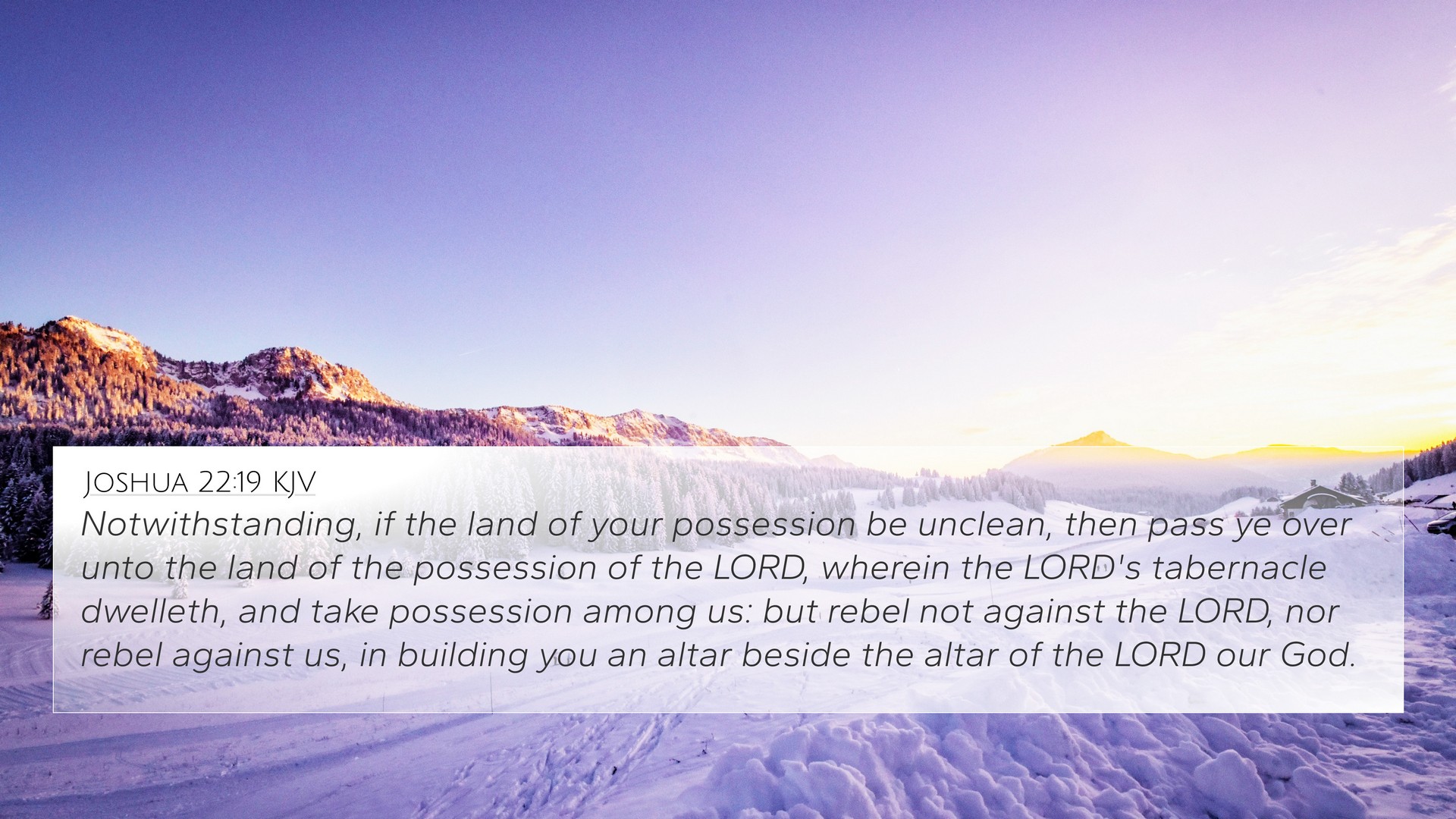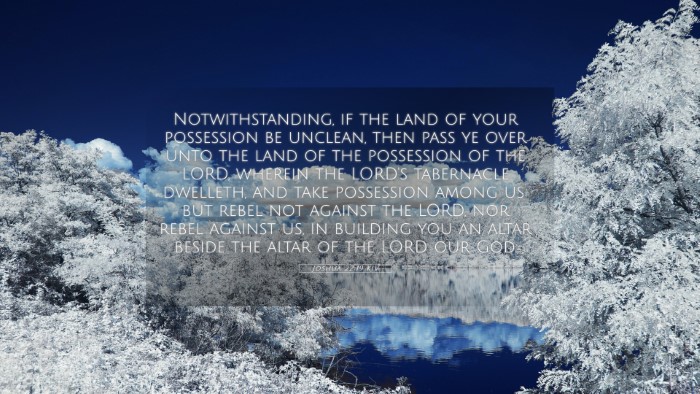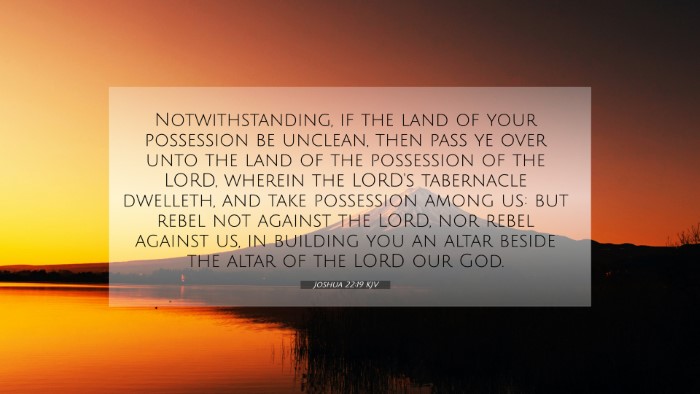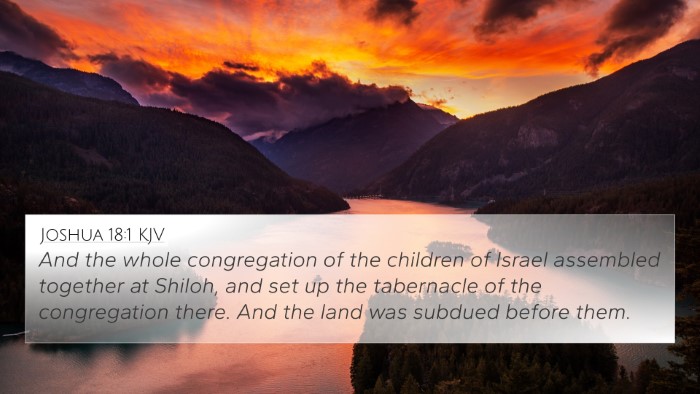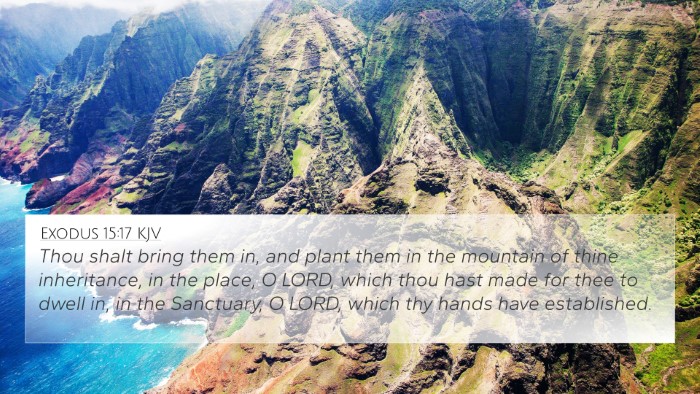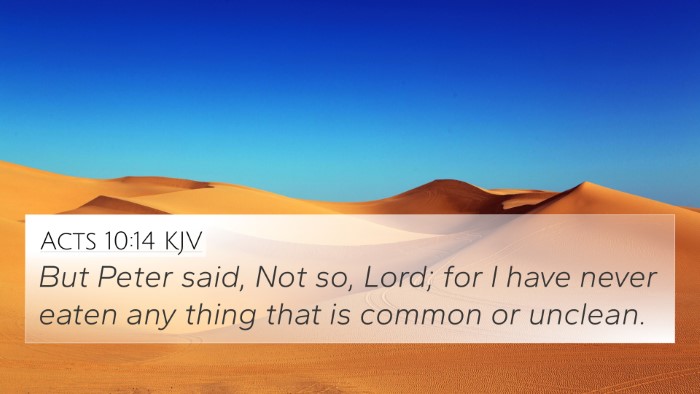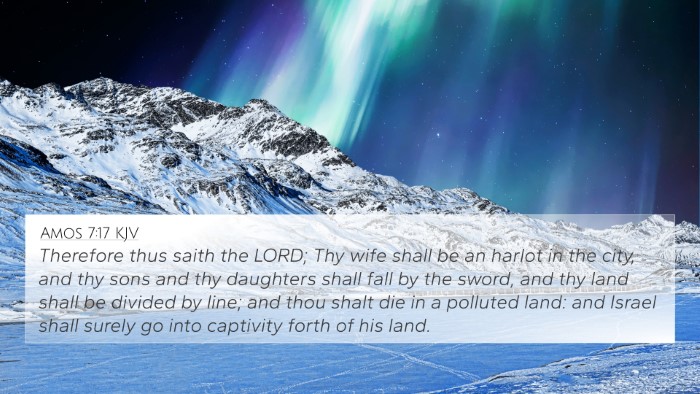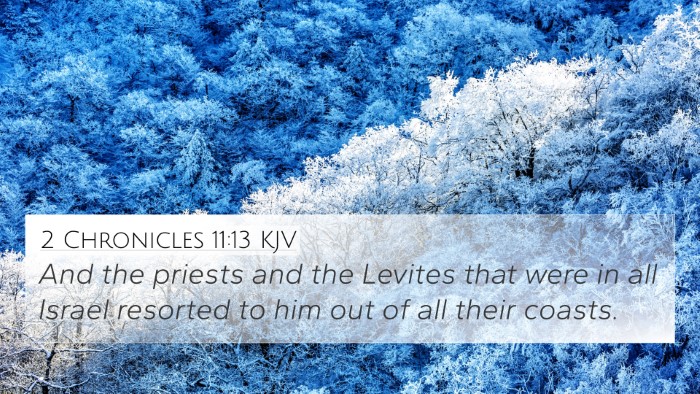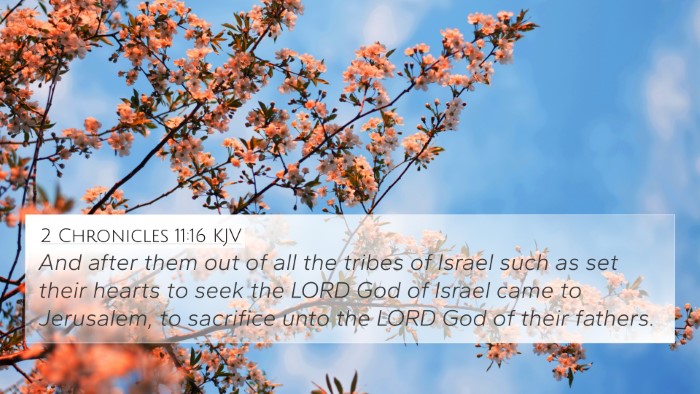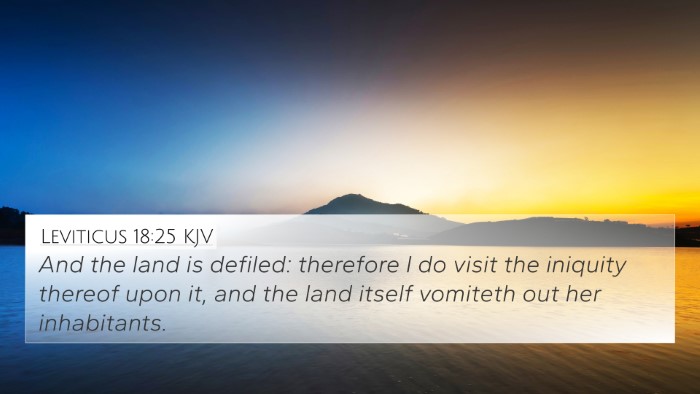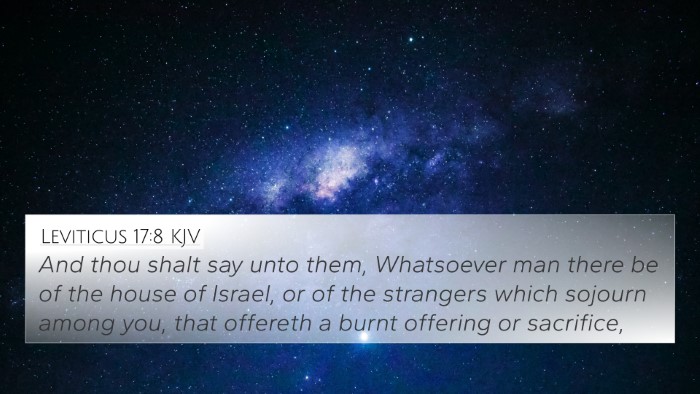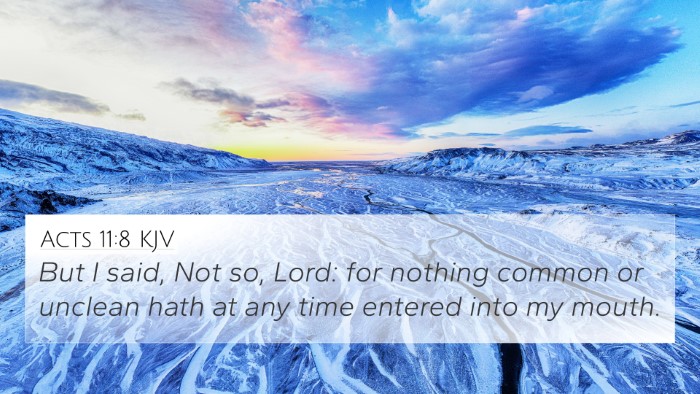Understanding Joshua 22:19
Joshua 22:19 states: "But if the land of your possession is unclean, then cross over to the land of the possession of the Lord, where the Lord's tabernacle stands, and take possession among us. But do not rebel against the Lord, or rebel against us, by building for yourselves an altar other than the altar of the Lord God."
This verse reflects a significant moment in the narrative of Israelite history, capturing themes of community, loyalty, and sanctity of worship. In this commentary, we gather insights from public domain commentaries to enrich the understanding of this verse.
Historical Context
The context of this verse emerges from the aftermath of the Israelite conquest of Canaan. The tribes of Reuben, Gad, and the half-tribe of Manasseh established their territories east of the Jordan River, which led to concerns regarding their commitment to the worship of Yahweh and the unity of the Israelite community.
Commentary Insights
Matthew Henry's Commentary
Matthew Henry emphasizes the importance of preserving the purity of worship among God's people. He notes that the call to cross over to the land of the Lord is an invitation to remain in fellowship with the broader community of believers. Building an altar apart from the designated altar could symbolize rebellion and a departure from God's covenant order.
Albert Barnes' Notes on the Bible
Albert Barnes highlights the concern of the western tribes regarding the fidelity of their brethren. He interprets the statement as a strong warning against establishing separate worship practices that could lead to factionalism. Barnes underscores the idea that the altar is not only a place of sacrifice but serves as a central point of unity for the people.
Adam Clarke's Commentary
Adam Clarke adds depth by analyzing the cultural implications of building altars. He explains that the Israelites' call to remain faithful to the singular worship of Yahweh was crucial for their identity as God’s chosen people. Clarke speaks to the blended themes of loyalty and the significance of community in their religious practices.
Thematic Connections
- Unity in Worship: The verse underscores a central theme in the Bible where the community of believers must maintain a singular focus in their worship practices.
- Warning Against Idolatry: This verse is a stark reminder of the dangers of creating alternative altars, which can lead to a deviation from God's intended forms of worship.
- The Importance of Centralized Worship: The call to remain at the altar of the Lord highlights the theological premise that worship should be centralized and guided by God's blueprint.
Cross-References
Joshua 22:19 can be illuminated by examining several related scripture passages:
- Exodus 20:24: "An altar of earth you shall make for me..." - The foundational directive on worship practices.
- Deuteronomy 12:5: "But you shall seek the place that the Lord your God will choose..." - God's instruction regarding the central place of worship.
- 1 Samuel 15:23: "For rebellion is as the sin of witchcraft..." - The spiritual dangers of straying from God's commands.
- Hebrews 13:10: "We have an altar from which those who serve the tent have no right to eat." - New Testament affirmations of the continual importance of the 'altar.'
- John 4:21: "Woman, believe me, the hour is coming when neither on this mountain nor in Jerusalem will you worship the Father." - A reference indicating the transition in worship dynamics.
- 1 Corinthians 10:20: "No, I imply that what pagans sacrifice they offer to demons and not to God..." - Warning against idolatrous practices.
- Matthew 5:23-24: "So if you are offering your gift at the altar and there remember that your brother has something against you..." - Emphasizing relationships in worship.
Applications for Today
In today’s context, Joshua 22:19 encourages believers to reflect on their worship practices. It prompts questions such as: Are we fostering unity in our communities of faith? Are there any altars we may be building in our lives that distract us from the singular worship of God? The message remains relevant as we navigate modern faith expressions.
Conclusion
In summary, Joshua 22:19 serves as a potent reminder of the importance of collective worship, the dangers of division within faith communities, and the call to remain faithful to God’s established forms of worship as portrayed through the insights from multiple commentaries. The way the passage reinforces the interconnectedness of God's directives and community unity resonates deeply within the broader narrative of scripture.
